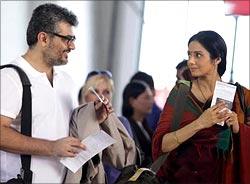BEIJING (AP) — Foxconn Technology Group said Saturday that production at its central Chinese factory that makes Apple's iPhones was continuing without interruption, denying a labor watch group's report that thousands of workers at the plant had gone on strike.
New York-based China Labor Watch had reported that 3,000 to 4,000 workers at the factory in Zhengzhou city went on strike Friday over increased quality control demands and having to work during an extended national holiday.
Foxconn, a Taiwan-based electronic manufacturer, confirmed there were two isolated, small-scale disputes between production line workers and quality assurance personnel on Monday and Tuesday at the factory, but denied there was any strike or work stoppage. Foxconn did not specify what issues had caused the dispute, but said immediate measures were taken to resolve the problems, including adding production line workers.
China Labor Watch had said several iPhone 5 production lines at the factory were paralyzed after the workers found the new quality control demands difficult to meet and went on strike. The group said the workers also were angry about being forced to work through China's National Day Golden Week holiday, which ends Sunday.
The iPhone 5, the latest in the line of the smartphones, debuted in September.
Foxconn said its employees in China who worked during the holiday did so voluntarily and were being paid three times their normal pay, in accordance with Chinese labor law.
China Labor Watch said workers also beat quality control inspectors, who carried out their own work stoppage after management ignored their complaints.
Apple could not be reached immediately for comment.
According to China Labor Watch, Apple and Foxconn had imposed stricter quality standards regarding indentations and scratches on the frames and back covers of the iPhones but did not provide workers with proper training to meet the new demands.
In late September, a brawl involving 2,000 workers broke out at Foxconn's factory in the northern Chinese city of Taiyuan, highlighting chronic labor tensions in a country that prohibits independent unions.
Labor activists have said the rollout of the iPhone 5 has led to longer working hours and more pressure on workers.






















